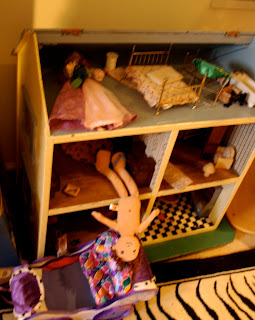
Neil White is our friend who is an incredible writer with an amazing story. His memoir, In the Sanctuary of Outcasts, came out last year and we were among the lucky few to get an early read.
In Sanctuary Neil describes his incarceration in a federal prison in the nineties. But, the prison where he finished out his sentence doubled as the the last remaining Leprosorium in the US. Yep-That's a modern day leper colony, although after bonding with the patients, many who had been there their whole lives, Neil hates the word leper (and now so do we). What Neil didn't expect was for his stay with the patients in Carville, Louisiana, to change his life forever, and not for the worst.
Here's a brief description of his book from Harper Collins:
Daddy is going to camp. That's what I told my children. A child psychologist suggested it. “Words like prison and jail conjure up dangerous images for children,” she explained. But it wasn't camp . . .
Neil White, a journalist and magazine publisher, wanted the best for those he loved—nice cars, beautiful homes, luxurious clothes. He loaned money to family and friends, gave generously to his church, and invested in his community—but his bank account couldn't keep up. Soon White began moving money from one account to another to avoid bouncing checks. His world fell apart when the FBI discovered his scheme and a judge sentenced him to serve eighteen months in a federal prison.
But it was no ordinary prison. The beautiful, isolated colony in Carville, Louisiana, was also home to the last people in the continental United States disfigured by leprosy. Hidden away for decades, this small circle of outcasts had forged a tenacious, clandestine community, a fortress to repel the cruelty of the outside world. It is here, in a place rich with history, where the Mississippi River briefly runs north, amid an unlikely mix of leprosy patients, nuns, and criminals, that White's strange and compelling journey begins. He finds a new best friend in Ella Bounds, an eighty-year-old African American double amputee who had contracted leprosy as a child. She and the other secret people, along with a wacky troop of inmates, help White rediscover the value of simplicity, friendship, and gratitude.
Neil's story is an amazing story of redemption in an unlikely place, and Neil's writing is beautiful and gut-wrenchingly honest. He allows the reader to grow with him--suspending prejudice, selfish motivations, and a constant need for approval as the book progresses. In his final acknowledgments, Neil thanks the federal judge who sentenced him (this was especially poignant for me since the judge is a family friend, and I can assure you, he is never "thanked" for sending someone to prison).

It is a MUST read.
Last Wednesday we heard Neil speak about four women who had influenced him in his life. He spoke with self-deprecating humor and beautiful truth about how strong his experience at the Leprosarium had made him and about how these strong women continue to shape his life and keep him focused on the best things. We are proud to call him our friend.
Thanks for this amazing book, Neil!
Katie and SF
*I cannot finish this post without telling my favorite "Neil" story . . .
He was at a big writing conference and some youngish women came up to him and said, "I'll bet you were in a fraternity."
Neil replied, "Yes. As a matter of fact, I was president of my fraternity."
The women scoffed, "Puh-leeze, what do YOU have to write about?"
Neil, "Well, I was incarcerated in the last federal Leprosarium for a year. . . ."
Silence. Then . .
"You are sooooo lucky!!"
Neil said to us when he was telling this story (we pretty much had the same reaction when he told us the subject of his book)--"Only writers would think something like going to prison is cool."




















